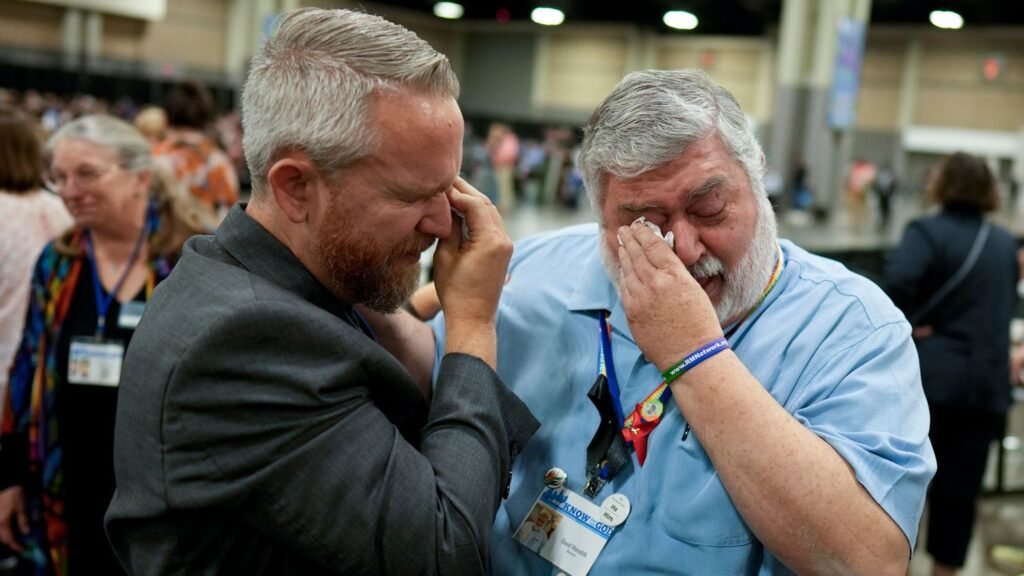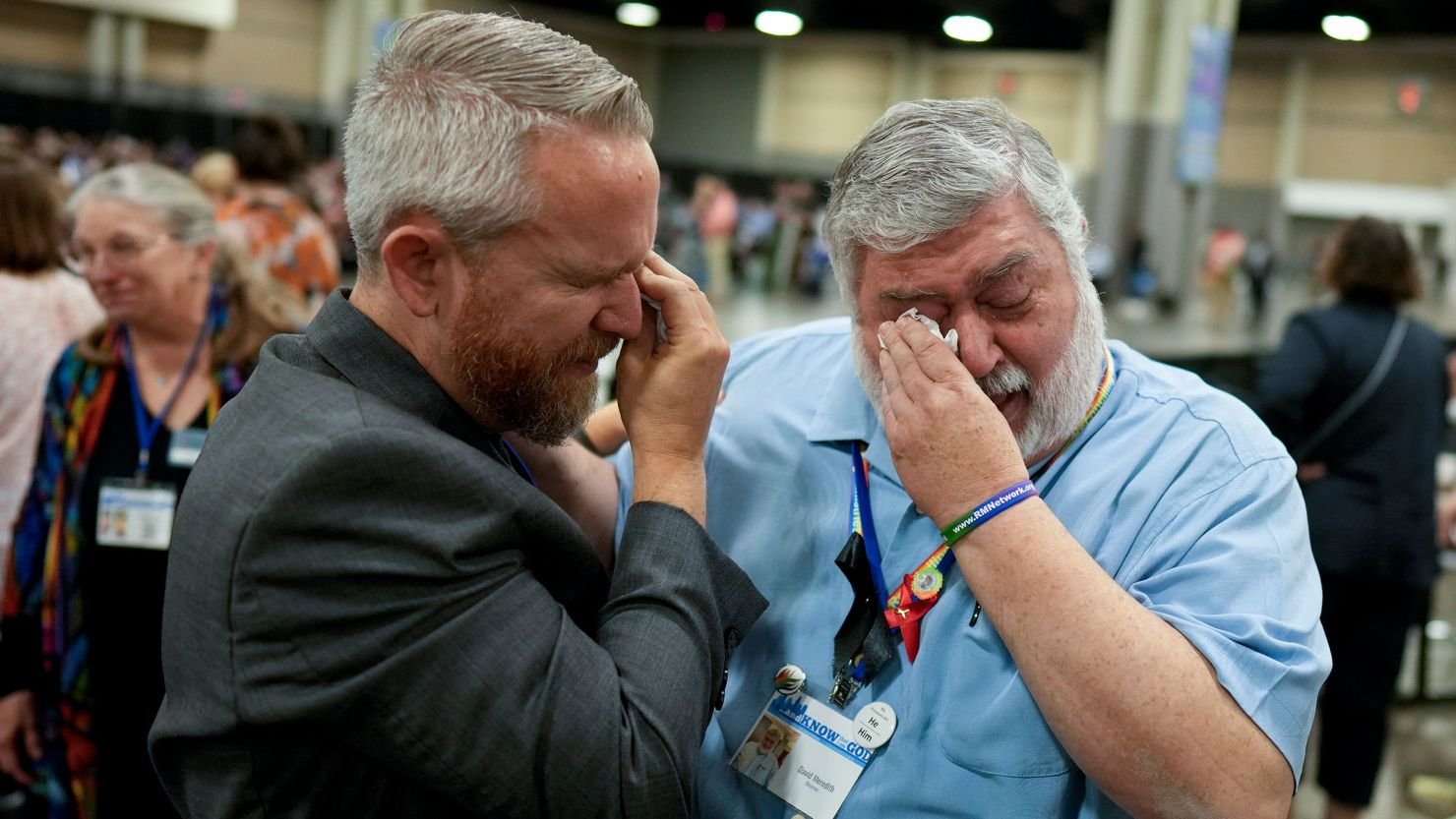In a landmark decision, the United Methodist Church (UMC) has made a historic move by lifting its 40-year ban on LGBTQ clergy.
This significant shift in policy marks a pivotal moment in the church’s stance on LGBTQ inclusion and rights.
With this decision, the UMC joins a growing number of religious institutions worldwide that are reevaluating their positions on LGBTQ issues.
The decision comes after years of internal debate and reflects changing attitudes within the church and broader society.

Let’s delve into the details of this momentous decision and its implications.
Background: A Long-Standing Ban
For four decades, the United Methodist Church has enforced a ban on LGBTQ clergy, effectively barring openly gay, lesbian, bisexual, and transgender individuals from serving in ordained positions within the church.
This policy, outlined in the church’s Book of Discipline, has been a source of contention and division within the denomination.
The debate over LGBTQ inclusion has simmered for years, with passionate advocates on both sides advocating for their respective positions.
Internal Divisions and Debates
The issue of LGBTQ inclusion has deeply divided the United Methodist Church, with traditionalists and progressives holding divergent views on matters of sexuality and gender identity.
Traditionalists have argued for maintaining the church’s traditional stance, viewing homosexuality as incompatible with Christian teachings and advocating for the enforcement of the ban on LGBTQ clergy.
In contrast, progressives have pushed for greater inclusivity, calling for an end to discriminatory policies and full acceptance of LGBTQ individuals within the church.
Recent Developments and Decision-Making Process
The road to lifting the ban on LGBTQ clergy has been fraught with challenges and debates within the United Methodist Church.
In recent years, the denomination has faced mounting pressure to address the issue, particularly as attitudes towards LGBTQ rights have evolved globally.
The UMC’s General Conference, the highest legislative body within the denomination, has been the primary arena for discussions and decisions regarding LGBTQ inclusion.
Landmark Vote: The Turning Point
In a historic vote, the United Methodist Church’s General Conference has voted to overturn the ban on LGBTQ clergy, signaling a significant shift in the denomination’s stance on LGBTQ issues.
The decision, which was reached after intense deliberation and prayerful consideration, represents a major turning point for the UMC and its approach to LGBTQ inclusion.
The vote reflects changing attitudes within the church and a growing recognition of the need for greater inclusivity and acceptance of LGBTQ individuals.
Implications for the United Methodist Church
The decision to allow LGBTQ clergy marks a watershed moment for the United Methodist Church, with far-reaching implications for the denomination and its future trajectory.
The move is expected to have profound effects on the church’s internal dynamics, as well as its relationships with other Christian denominations and the broader society.
While the decision represents a significant step towards LGBTQ inclusion, it is unlikely to resolve all the underlying tensions and disagreements within the denomination.
Reactions and Responses
The decision to lift the ban on LGBTQ clergy has elicited a range of reactions from within the United Methodist Church and beyond.
Supporters of LGBTQ inclusion have hailed the decision as a long-overdue victory for equality and justice within the church.
LGBTQ clergy and their allies have expressed relief and gratitude for the recognition of their gifts and calling to ministry.
However, not all members of the UMC are pleased with the decision, with some traditionalists expressing disappointment and concern about the direction of the denomination.
Challenges Ahead: Navigating Change
While the decision to allow LGBTQ clergy is a significant step forward, the United Methodist Church still faces numerous challenges as it navigates the process of change and adaptation.
The denomination must grapple with issues of implementation, including how to support LGBTQ clergy and ensure their full inclusion within the church.
Additionally, the decision is likely to exacerbate existing divisions within the UMC, raising questions about its future unity and coherence.
Looking Ahead: Towards Greater Inclusivity
As the United Methodist Church moves forward from this historic decision, it must continue to wrestle with questions of identity, theology, and mission in an ever-changing world.
The decision to lift the ban on LGBTQ clergy represents a crucial step towards greater inclusivity and acceptance within the denomination.
However, the journey towards full LGBTQ inclusion is far from over, and the UMC must remain committed to fostering a culture of love, grace, and welcome for all people, regardless of sexual orientation or gender identity.
